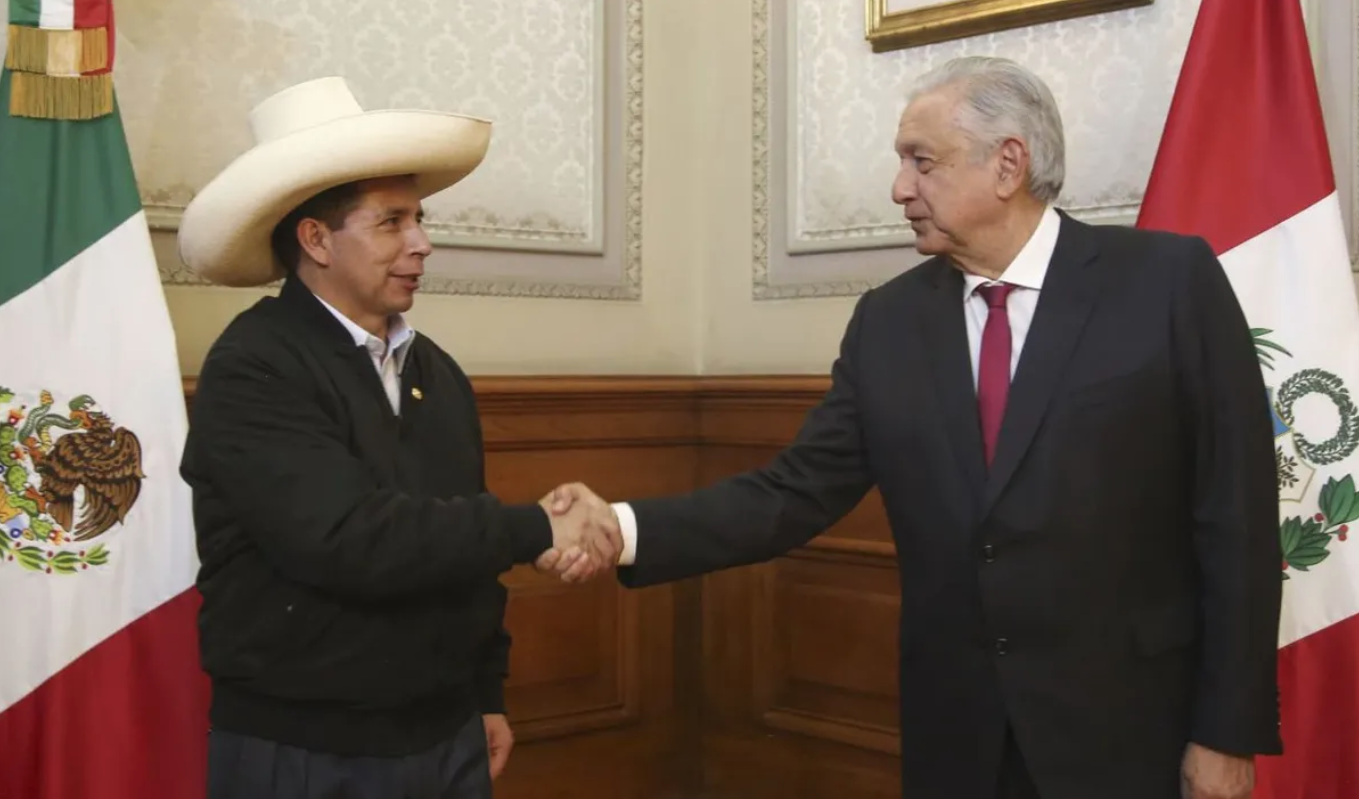As a European observer of Latin American foreign policy, one often wonders whether it is guided by general principles or norms. European governments are used to being accused, often quite rightly, of applying double standards in their foreign policy. But it seems that some Latin American governments want to match or even surpass Europe in this respect.
AMLO and his selective interference
Mexican President Andrés Manuel López Obrador (AMLO) is a strong advocate of non-interference in the affairs of other Latin American states. For this reason, he has not criticized either the massive human rights violations or the forced expatriation of Nicaraguans; nor has he been interested in the legitimacy of Daniel Ortega’s regime, which imprisoned all serious opposition candidates before the last elections and then brutally repressed citizen protests, resulting in numerous deaths.
Suddenly, however, AMLO has taken an interest in the affairs of another Latin American state and thus becomes the arbiter of Peruvian politics. After Pedro Castillo’s televised and thwarted self-coup and his subsequent dismissal by Congress, the former president of Peru is in jail and justice must pass a sentence.
For AMLO, Castillo is a victim and the new Peruvian government is illegitimate. Certainly, the actions of the Peruvian government in repressing the protests and the Congress’ attitude in not calling early elections can be criticized. However, history should not be rewritten. Castillo did not fail because he was a leftist, but because of his ineptitude. He was elected as the least dissatisfactory of two candidates who, together, received only 32% of the vote in the first round. Castillo lost office because he tried to stage a coup d’état.
On the one hand, AMLO shows leniency toward a former revolutionary who has established an autocratic personalist regime in the best tradition of Somoza. On the other hand, AMLO defends a coup leader and as collateral damage, causes a crisis in the Pacific Alliance, one of the few regional organizations that, until now, has handled well the changes in the political orientation of its member countries’ governments. The Mexican government refuses to hand over the pro tempore presidency of the Pacific Alliance to the Peruvian government.
Lula da Silva and the Ukraine conflict
Brazilian President Luiz Inácio Lula da Silva wants to become a mediator in the Ukrainian conflict. When German Chancellor Olaf Scholz visited Brazil in January, Lula categorically rejected the delivery of ammunition to Ukraine for German-made anti-aircraft tanks used by the Ukrainian army, which are not an offensive weapon system but can repel air strikes against the civilian population. In this context, one might wonder whether it is not morally reprehensible to refuse such support to a country that is under attack, despite the violation of international law, and which is fighting for its survival.
Shortly afterward, at the beginning of March, the same Brazilian government allowed Iranian warships to enter the port of Rio de Janeiro. Iran is a country that supports with weapons (drones) the aggressor in the Ukrainian conflict and brutally oppresses its own population, particularly women.
Returning to the subject of Nicaragua. The long silence of Lula and his government on the forced expatriation of Nicaraguans shows that the defense of democracy and international conventions on human rights play only a subordinate role in the foreign policy of the new Brazilian government.
Recently, on March 7, Brazil broke its silence when its ambassador to the United Nations Human Rights Council in Geneva, Tovar da Silva Nunes, expressed “the deep concern of his government over the decision of the Nicaraguan authorities to deprive more than three hundred Nicaraguans of their nationality” and over “reports of serious human rights violations and restrictions to democratic space, namely summary executions, arbitrary detentions, and torture”. However, unlike other Latin American countries (such as Chile and Colombia), Brazil did not endorse a joint statement by 55 governments on the human rights situation in Nicaragua.
Sometimes it can be advantageous not to take a position on difficult and controversial foreign policy issues, but a regional power is expected to set standards for the region. In this regard, Lula has already disappointed during his previous presidencies by demonstrating a certain tolerance for authoritarian tendencies in the left camp.
Ultimately, this has led to the crisis and paralysis of the Union of South American Nations (UNASUR) and the Community of Latin American and Caribbean States (CELAC). At the Human Rights Council, the Brazilian Government finally offered to explore the possibility of constructive dialogue between the Government of Nicaragua and the relevant actors. However, the question arises as to who these relevant interlocutors should be, the banned and dissolved political parties and civil society organizations, or the expatriate opposition figures? Brazil’s initiative comes too late, and it is doubtful that the Nicaraguan government is interested in dialogue and mediation.
There are, of course, laudable exceptions and left-wing Latin American governments with a policy based on principles and the defense of human rights. States where the policy application does not depend on whether these rights have been violated by right-wing or left-wing governments. These are governments of the new left.
The Colombian government has adopted an unequivocal position with respect to Nicaragua. However, the clearest and quickest reaction was that of the Chilean Government of President Gabriel Boric, who, no doubt, would not have allowed Iranian warships to enter Chilean ports either, due to a clear position on the conflict in Ukraine and out of respect for Iranian women.
The ambiguous foreign policies of Brazil and Mexico, and erratic in the case of the latter, give the impression of a lack of principles that do not facilitate regional cooperation and integration processes. Therefore, there is a danger that the deepening of regional cooperation driven by this new pink tide will end as disappointingly as the previous tide when democratic standards ended up being diluted.
*Translated from Spanish by Janaína Ruviaro da Silva











